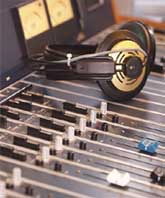Media consultant: Radio should adopt other media ideas
27-06-2006 (Paris)

Radio broadcasters should adopt ideas seen in other media such as search engines, digital recording via TiVo, iPods and mobile broadcasting in order to stay current and relevant to the consumer.
Media consultant Jonathan Marks of Critical Distance said broadcasters should be quick to realise that they have good on-demand content as well as to set up the required infrastructure to cash in on the current publicity generated by the technology companies.
“Let the newly rich technology companies pay for the expensive ads to launch the technology. It’s all useless without the relevant content. That means a great future for speech, as well as music,” he said.
Mr Marks said radio broadcasters had to recognise what people wanted and needed, as well as the type of products and services that they would pay for.
“People will pay for services that communicate status, and they will also pay to save time. They will not pay for anything that locks them into something they think they do not need,” he said.
Mr Marks was speaking at the annual RadioAsia conference at the Singapore Expo, which was jointly organised by the ABU, the Asian Media Information and Communication Centre (AMIC) and Singapore Exhibition Services.
Sponsors for the event include Singapore’s Media Development Authority, Friedrich Ebert Stiftung, UNESCO, DW-Germany, Nokia, Malaysia’s AMP Radio Networks, CRA-Australia, Nielsen Media Research and The Broadcast Partner.
Mr Marks also said that organisations such as the ABU and the European Broadcasting Union had a big role to play in coordinating metadata from its members, and ensuring that search engines such as Google, Blinkx and Technorati are able to access it.
“Hours have been spent (by the ABU and EBU) coordinating frequencies at international conferences. The result has been better audibility for members on overcrowded parts of the radio spectrum.
“There is also a role to coordinate metadata. It is important that all this stuff is found on search engines. Some of these programmes may start using the web as a form of on-demand distribution,” he said.
Source: ABU Weekly News Digest - 23 June 2006
“Let the newly rich technology companies pay for the expensive ads to launch the technology. It’s all useless without the relevant content. That means a great future for speech, as well as music,” he said.
Mr Marks said radio broadcasters had to recognise what people wanted and needed, as well as the type of products and services that they would pay for.
“People will pay for services that communicate status, and they will also pay to save time. They will not pay for anything that locks them into something they think they do not need,” he said.
Mr Marks was speaking at the annual RadioAsia conference at the Singapore Expo, which was jointly organised by the ABU, the Asian Media Information and Communication Centre (AMIC) and Singapore Exhibition Services.
Sponsors for the event include Singapore’s Media Development Authority, Friedrich Ebert Stiftung, UNESCO, DW-Germany, Nokia, Malaysia’s AMP Radio Networks, CRA-Australia, Nielsen Media Research and The Broadcast Partner.
Mr Marks also said that organisations such as the ABU and the European Broadcasting Union had a big role to play in coordinating metadata from its members, and ensuring that search engines such as Google, Blinkx and Technorati are able to access it.
“Hours have been spent (by the ABU and EBU) coordinating frequencies at international conferences. The result has been better audibility for members on overcrowded parts of the radio spectrum.
“There is also a role to coordinate metadata. It is important that all this stuff is found on search engines. Some of these programmes may start using the web as a form of on-demand distribution,” he said.
Source: ABU Weekly News Digest - 23 June 2006
Related themes/countries
· Media Development: News Archives 2006
Share this story:














